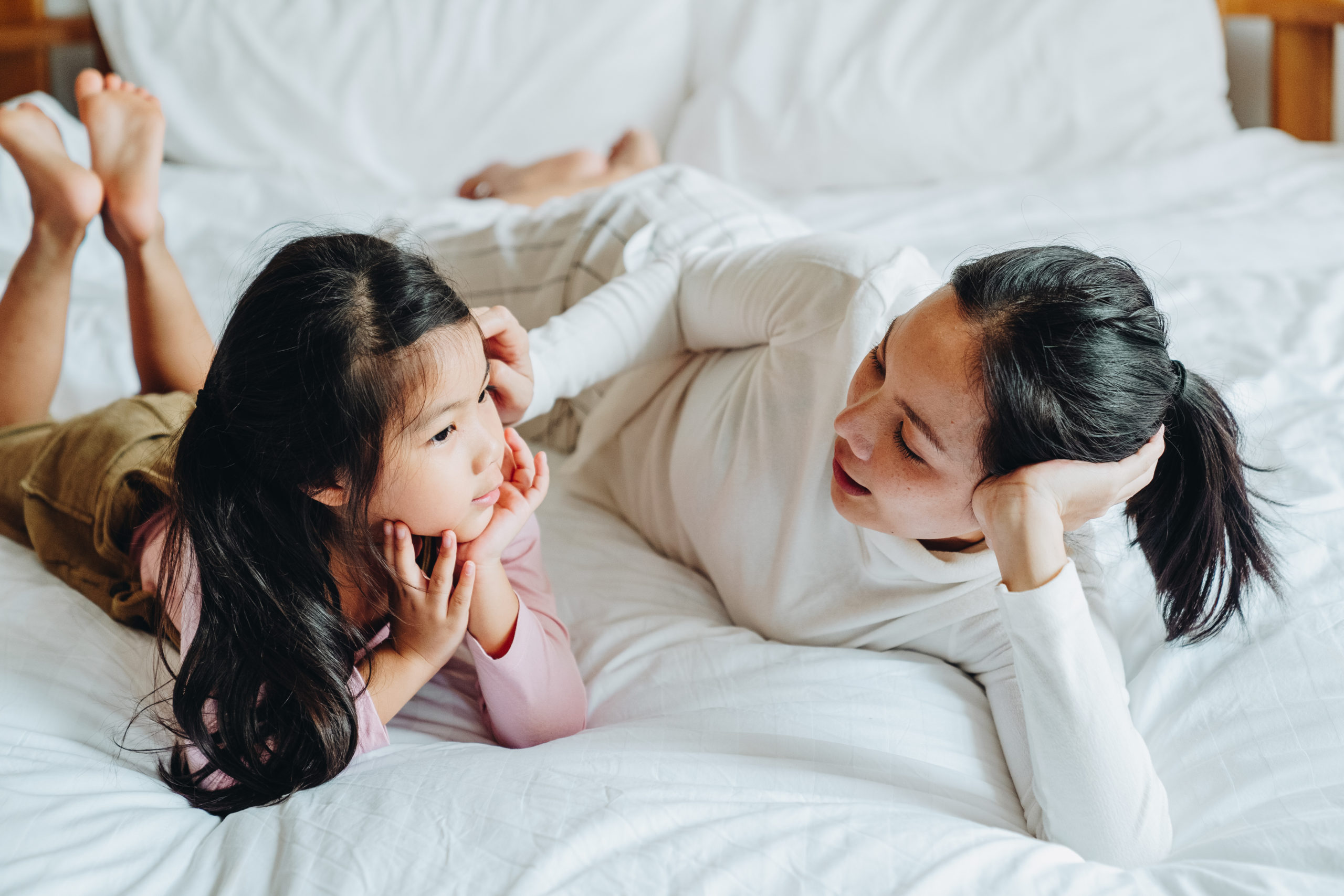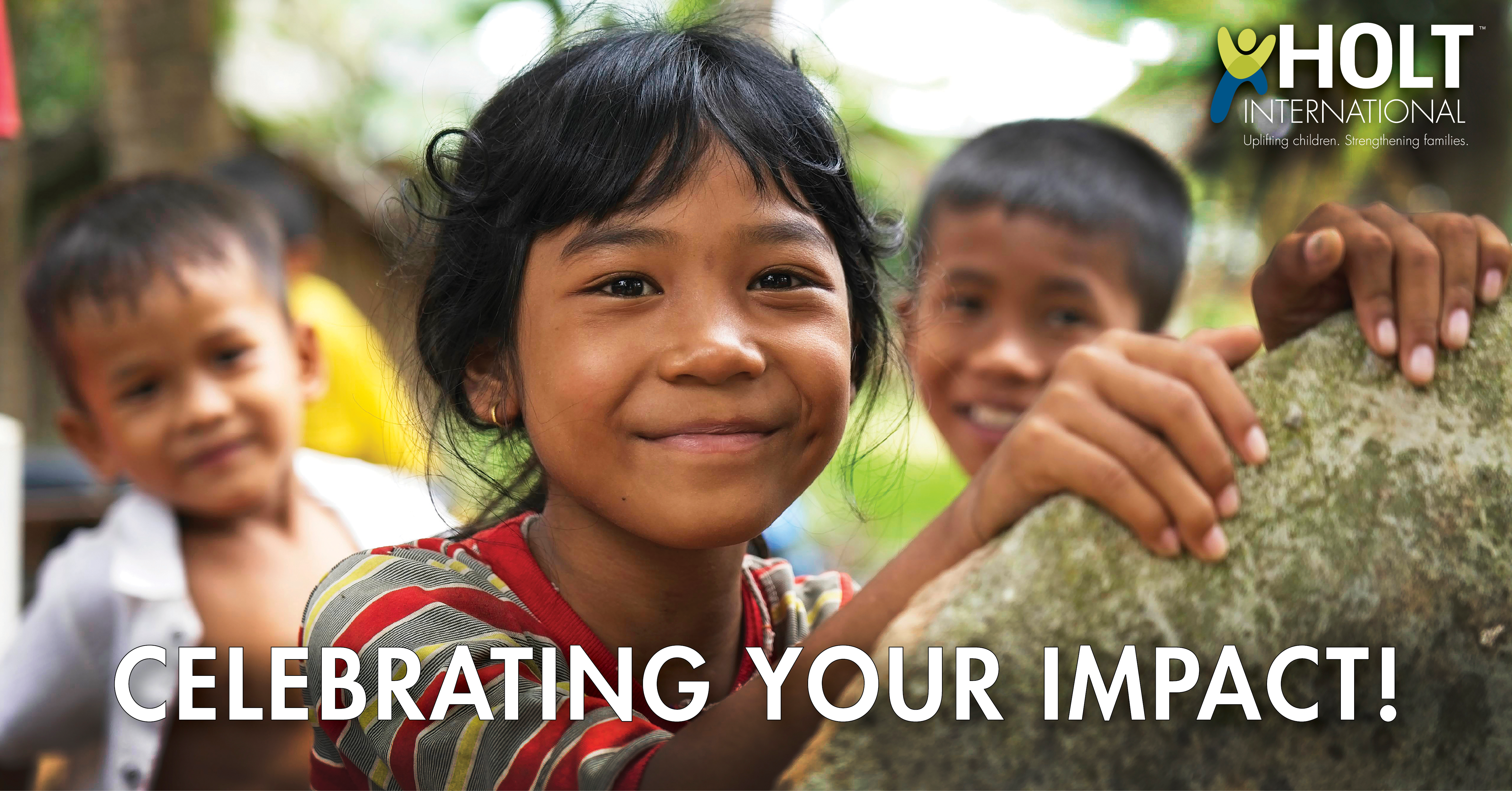A summary of Holt’s pandemic response over the past year, from supporting families and children in the adoption process to continuing holistic care for vulnerable families and children around the world.
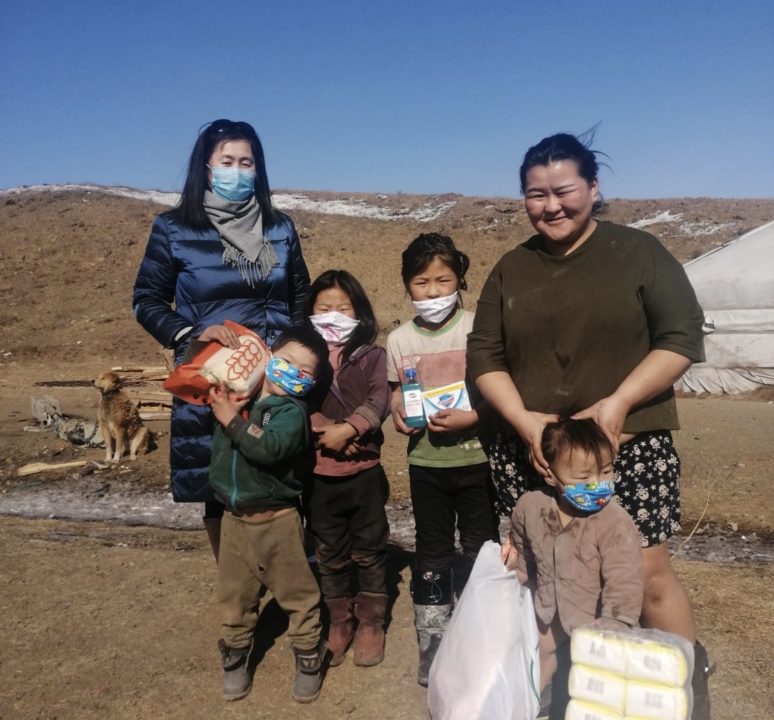
For all of us at Holt — and everyone across the globe — the past year has truly been one of the most difficult in our history. The COVID-19 pandemic changed the way we work and live, and caused a tragic loss of life and livelihood on a scale few if any of us have ever seen. But Holt has weathered many crises in its nearly 65-year history. Although we have never seen a crisis on this scale, Holt has and will continue to make it through this one.
Together in 2020, we overcame the unprecedented adversities we faced to provide life-changing care and support for over 288,400 children, families and individuals in 14 countries. We continued our work as we cared for our families. We also cared for and supported one another as this crisis hit home for each of us.
As this pandemic rages on, we will continue doing what we have always done as an organization. We will rise to the challenges before us, care for our staff and partners, and adapt with agility, ingenuity and above all, compassion as we continue our mission to serve vulnerable children, families and communities around the world.
We are truly in this together. And together, we will move forward.
Supporting U.S. and Overseas Staff & Partners
Throughout the pandemic, Holt’s teams around the world have worked diligently to protect the health and safety of children and families in our programs. But with COVID-19 a threat to everyone, Holt leadership has also taken measures to protect the safety of our staff.
From the outset, global and U.S. staff began working remotely or rotating shifts in the office. When out of necessity social workers have made in-person visits to families, they are equipped with masks and sanitizers and instructed to keep their distance. Contingency plans have been rapidly developed and frequently updated based on staff feedback about conditions in the field.
As COVID-19 spread in the U.S., Holt provided all U.S.-based staff with PPE and hand sanitizer, invested in IT infrastructure so more employees could work remotely, and modified office standards to limit exposure for staff working from the office. At Holt’s headquarters, investments were made to improve air quality. Leadership has also allowed flexible scheduling and eased access to paid leave benefits to alleviate the burden on employees juggling work and children or sick family members. For employees struggling financially, Holt implemented both the required Families First Coronavirus Response Act (FFCRA) provisions as well as many of the optional ones — including the ability to take hardship distributions from retirement.
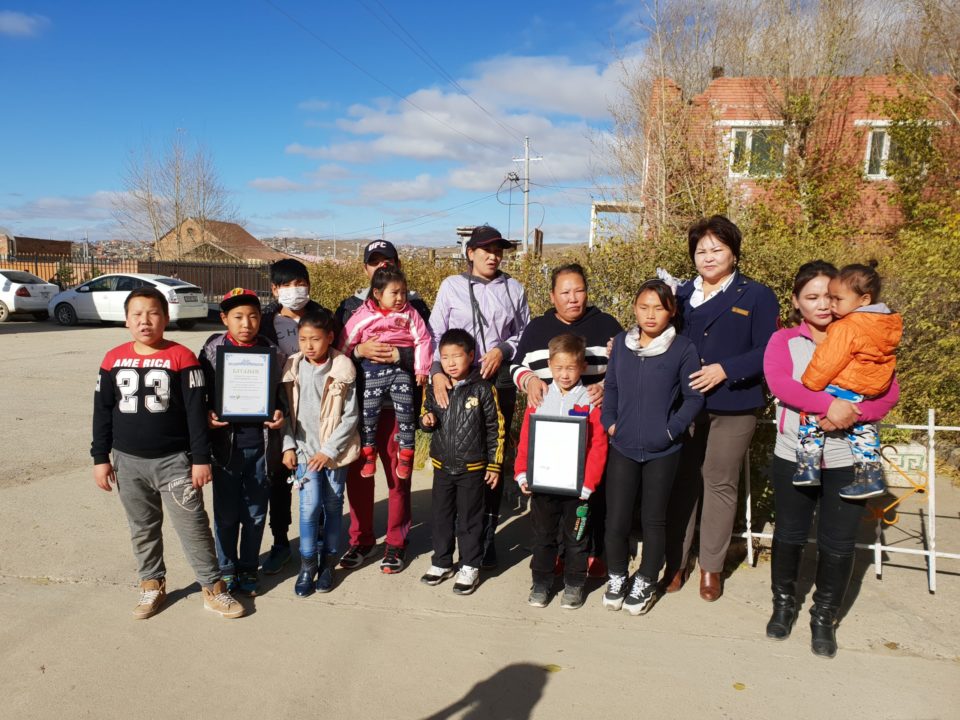
While the vaccine rollout has begun in earnest, the virus continues to spread. Unfortunately, some overseas staff have contracted COVID-19, especially in countries like India and Mongolia where cases have spiked dramatically. Tragically, we recently lost a beloved colleague, Mrs. Enkhjargal, a social welfare officer for the Mongolian government who worked closely with our Mongolia team to support and advocate for families in need. We are deeply saddened by her loss, and are continually humbled by the dedication our staff and partners on the frontlines have shown to the vulnerable children and families we serve.
With COVID-19 still very much a threat, the majority of Holt staff continue to work remotely and Holt’s leadership team continues to monitor the situation on the ground in every country — responding as needed to protect our employees and support those who are sick, struggling or grieving lost loved ones.
Continuing Holistic Care for Vulnerable Families
For most families, their most urgent needs included food, masks, sanitizers and medicines they could not access during quarantine. In rural Ethiopia, our staff distributed emergency food to over 1,000 families, while in Thailand, Holt Sahathai Foundation increased food aid from 70 to 400 families in need. As India went into lockdown, our partner BSSK surveyed families about their individual needs and then went house to house distributing bags of food and prescription medicines. For the first time, several of our in-country teams began issuing direct cash transfers — giving families the flexibility to meet self-identified needs such as paying rent to avoid eviction or, in the ger communities of Mongolia, purchasing coal to heat their homes.
As entire countries went into lockdown early last year, families in poverty went into crisis. Many had no way to feed their children. Tensions rose among families confined at home. In some communities, alcoholism and domestic violence increased. Across Holt programs, the risk of family separation was at an all-time high. But in each of our partnering countries, Holt’s on-the-ground teams strategized an immediate response to protect children and families in our programs.
Once immediate needs were met, our staff and partners began addressing the overall mental and emotional health of families. Meeting families remotely or safely in person, Holt social workers provided psychosocial support and crisis counseling. In India, one partner held digital parenting sessions to help parents manage stress and anger. With cases of domestic violence increasing in Mongolia, Holt increased direct support to domestic violence shelters while our social work team began calling families every day.
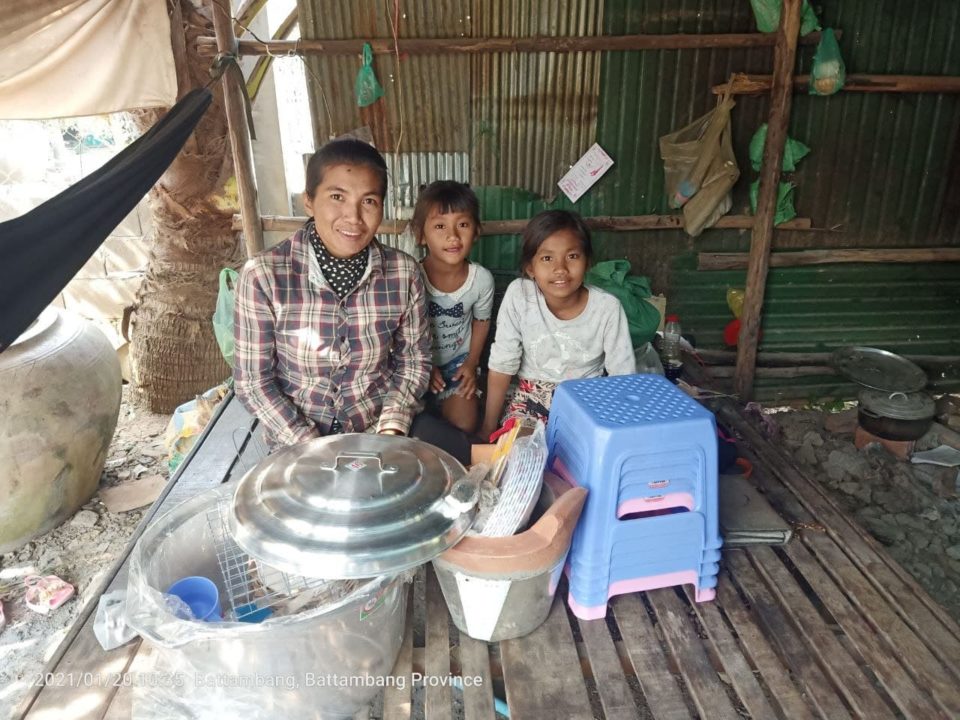
As this global crisis continues, our staff and partners have already begun developing and implementing long-term solutions to help families remain stable and self-reliant. In Thailand, Holt Sahathai Foundation taught families how to grow vegetable gardens — providing a sustainable source of food. Holt Cambodia, meanwhile, has helped parents who lost their jobs start businesses they can sustain for however long the pandemic continues.
Through the phenomenal efforts of our teams around the world, 30,469 children received the care and support they needed to safely remain in the loving care of their families in 2020.
“The signs that children will bear the scars of the pandemic for years to come are unmistakable.”
Henrietta Fore, UNICEF Executive Director
Keeping Children Engaged in Education
Throughout the pandemic, one of the greatest challenges Holt’s staff and partners have faced is how to keep children engaged in their education. While schools have fully or partially reopened, others have remained closed or quickly shut down again following a resurgence of COVID-19. And while some schools offer classes online, in some regions access to internet is limited or nonexistent. But around the world, our teams have responded with innovative solutions to keep children safe and learning throughout this crisis.
When our team in Uganda saw that children were struggling to do their schoolwork without electricity at home, they delivered solar lamps that children could charge in the sun during the day and study by at night. In the urban slum communities where Holt works in India, internet connections are strong but few children have access to digital devices. For these children, our partners distributed smartphones and laptops.
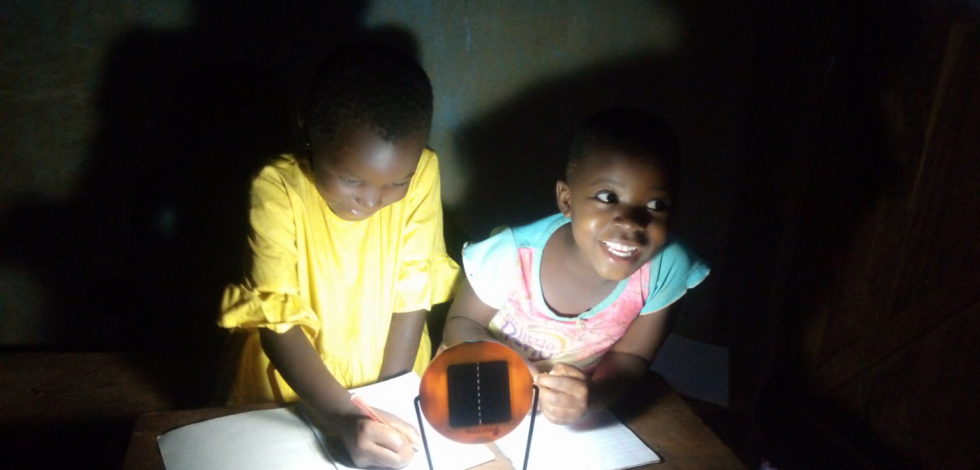
In addition to digital devices, our staff and partners have distributed everything from science kits and art supplies to workbooks, puzzles, books and games. But simply equipping children with the tools they need doesn’t mean they learn as well at home as they would in a classroom. In the absence of trained, dedicated teachers, the support and encouragement of social workers has proved invaluable — especially for children whose parents have limited education themselves.
In India, one partner held digital summer camps while another started a podcast to remotely support, encourage and counsel students and their families. Everywhere, our staff and partners have continued to meet with families remotely via Zoom or safely in person to ensure children stay on track and safe from all the dangers children face when they’re not in school, from child labor to child trafficking.
In total, 25,675 children and young adults attended school, preschool or college with Holt support in 2020.
Supporting Children and Families in the Adoption Process
In the U.S. and around the world, our staff and partners have remained tireless in their dedication to ensuring children can join permanent, loving families through adoption. While adoption travel to South Korea continued mostly uninterrupted throughout 2020, other countries and regions where families have begun traveling include Colombia, Thailand, the Philippines, Taiwan and country’s requirements around COVID-19 to advise and support traveling families.
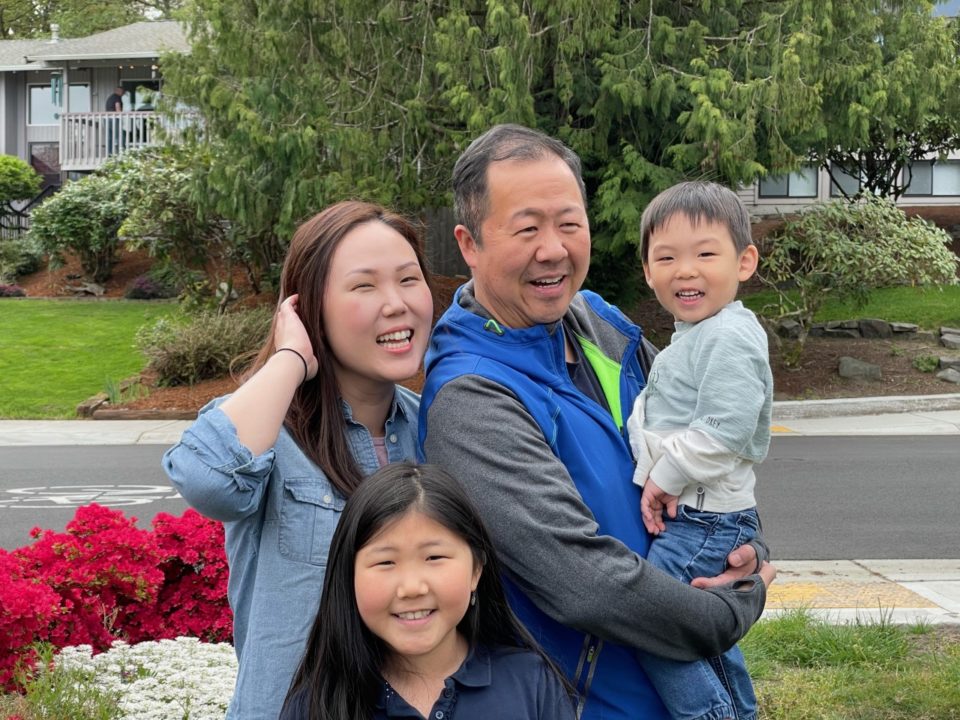
While the adoption process moves forward for most countries, travel remains stalled for families adopting from China. At present, Holt has over 70 families who are unable to unite with their children due to China’s travel and adoption processing ban. During this heart-wrenching time, Holt’s China and leadership teams have gone above and beyond to advocate for and support waiting families and children.
Holt’s U.S-based and in-country China staffs have teamed up to provide Zoom meetings with families in process, keeping them informed and encouraged. Susan Cox, Holt’s VP of policy and external affairs, spearheaded an initiative to send letters and photobooks of matched families and children to officials in China — urging for the bans to be lifted. To help waiting children and families build and maintain a connection, Holt’s China team also delivered to orphanages photobooks and videos that families created for their children.
As other countries have also faced travel and process delays, Holt’s adoption teams have also made extra efforts to support families in process. They have advocated for waiting families to connect with their children via Zoom. They have held virtual town hall meetings for families to connect and support each other. And as travel opens up, they continue to work with overseas partner agencies and embassies to provide support for families while in country — for example, connecting with families via “WhatsApp groups” to ensure they are safe and supported while in quarantine.
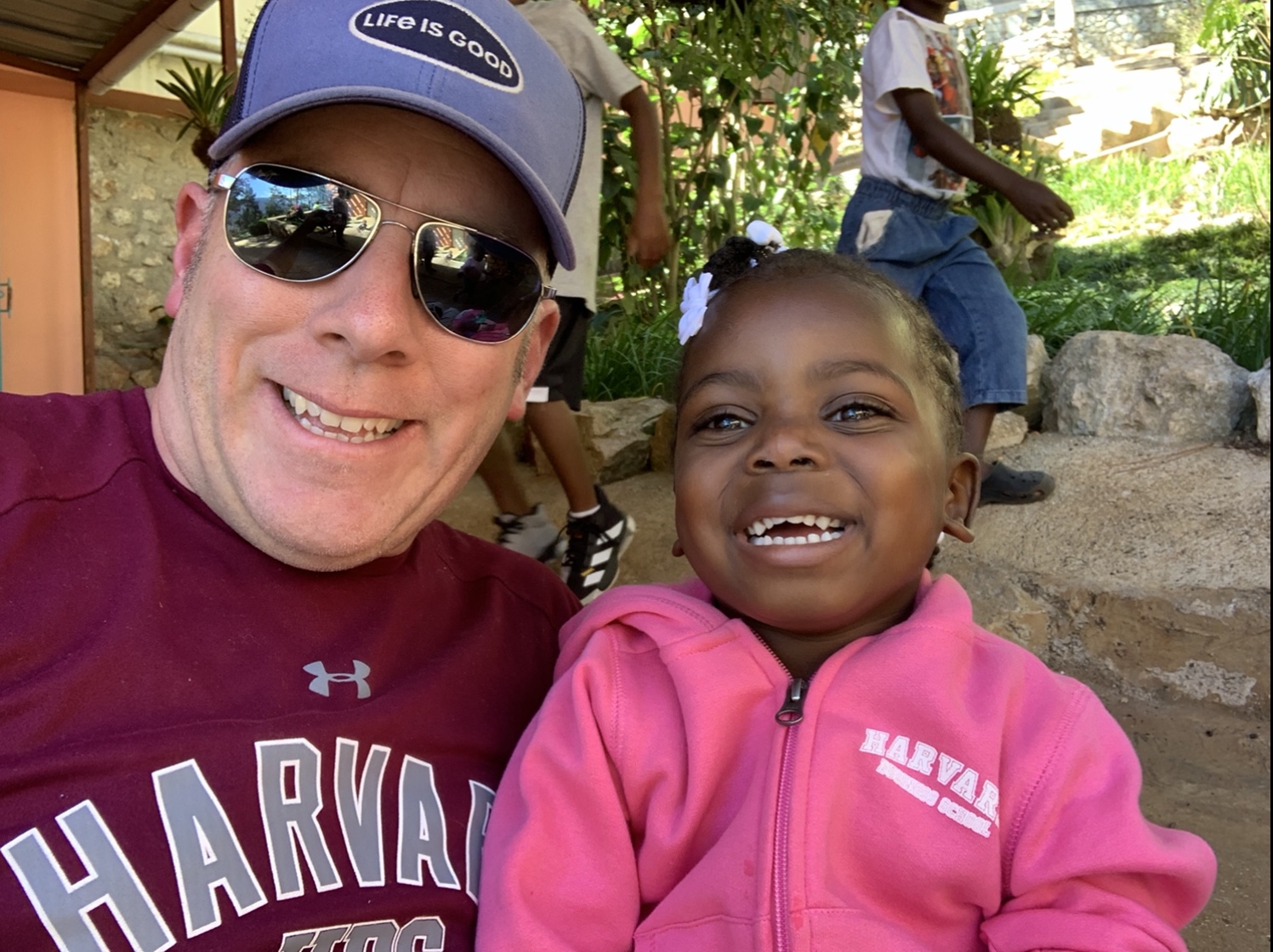
Despite setbacks at later stages in the process, adoption applications, including for China, have not slowed down during the pandemic. And despite unprecedented delays and challenges over the past year, our adoption teams successfully helped 433 children join families through domestic and international adoption in 2020.
Caring for Children in Orphanages and Foster Homes
Early last year, as a deadly new virus broke out in Wuhan, China, Holt and Holt donors responded immediately — sending emergency supplies to protect vulnerable children in orphanage care. As COVID-19 became a global pandemic, we began sending protective supplies to all of our partnering orphanages, group homes and foster families around the world. Successful emergency campaigns led by Holt’s fundraising team made it possible to provide everything from masks, thermometers, sanitizers and disinfectants to funding to hire additional caregivers.
In rural India, Holt helped hire one nurse and multiple additional caregivers at an orphanage that went from caring for five children to 22 children during the pandemic.
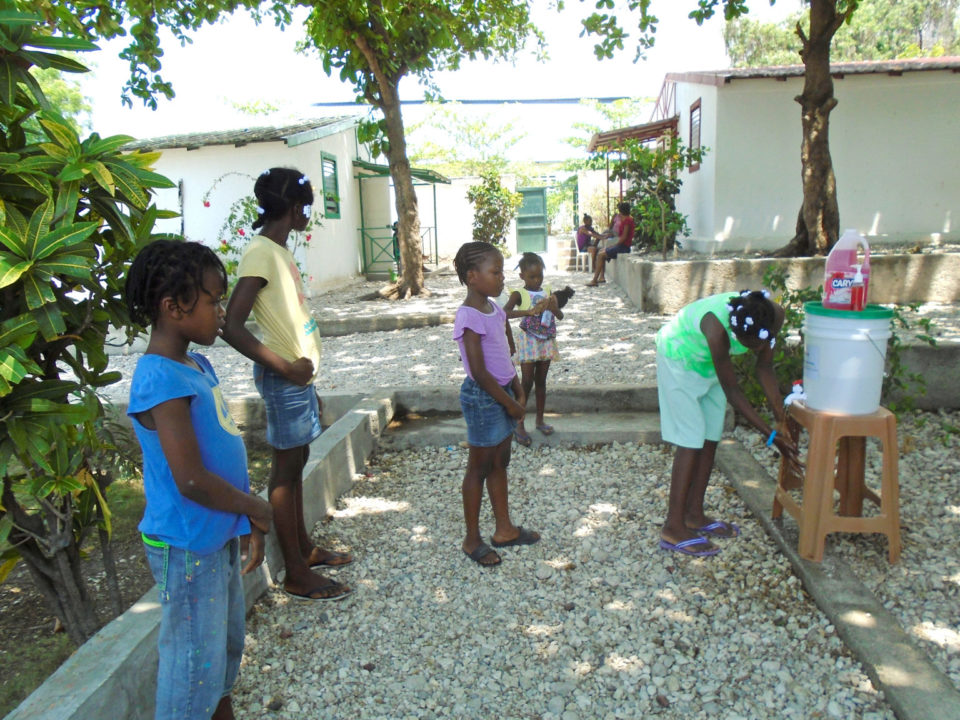
In Haiti, our staff distributed handwashing stations and sanitations kits to five partner crèches. With Child Nutrition Program funding, Holt Haiti has also been able to continue its school breakfast program— providing nourishing meals to children at crèche-based schools and a government residential facility. This program has become even more essential during the pandemic as care centers have more limited funding. Circumstances are similar in Mongolia, where the government has struggled to provide funding to our partnering care centers. At these orphanages, Holt support ensures children continue to receive nutritious daily meals.
As a safety precaution, many orphanages have remained on lockdown, with children isolated in quarantine for months at a time. Everywhere, our staff and partners have taken steps to protect children’s mental and emotional health. When orphanages partially reopened last May and June in China, Holt social workers visited the children to provide much-needed one-on-one attention.
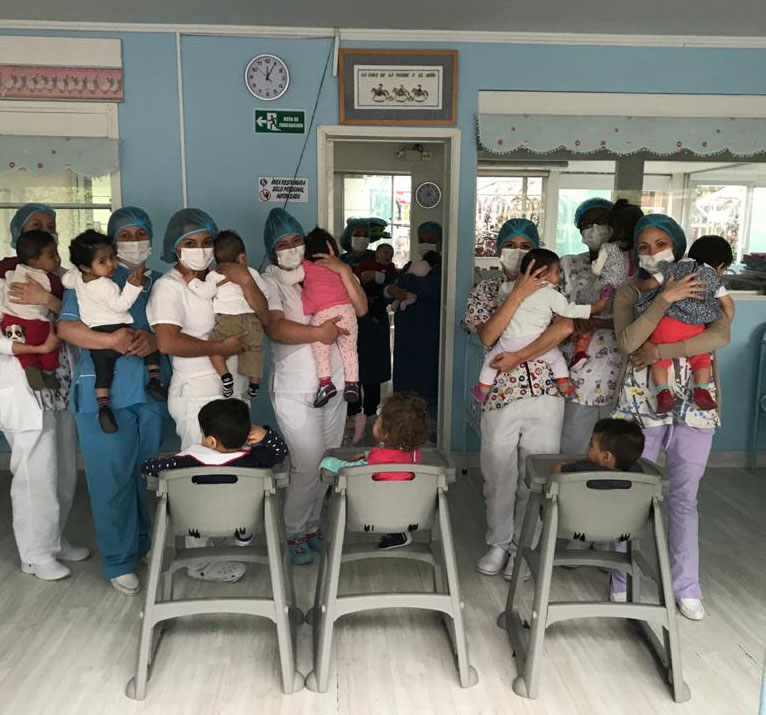
In Colombia, our orphanage partner created structured daily activities, including fun activities to lower stress and anxiety. Children with special needs have continued to receive specialized therapies. And for children in the adoption process, many of our partners have helped regularly connect them with their families, including via video calls.
In total, 6,835 children living in orphanages or foster families received holistic care through Holt support in 2020. Through emergency fundraising, we were also able to provide PPE for orphanages we don’t normally partner with — protecting 7,280 children in orphanages and foster homes around the world.
Serving Children, Families and Adoptees in the U.S.
Throughout the pandemic, Holt’s U.S. domestic services teams have gone above and beyond to support children, birth parents, adoptive families, foster families and Adoptees. U.S.-based social workers continue to navigate social distancing requirements — especially as they find creative ways to meet with families and supervise child placements.
Forgoing typical living room settings, social workers have conducted interviews and assessments in families’ backyards, opened garages and even in tents outside the family’s home. Therapy services were offered virtually as insurance companies allowed greater flexibility for telehealth services. Holt’s Empowering Families program also welcomed new clients via video conferencing and provided support to purchase groceries, diapers and formula as families struggled with reduced work hours and school closures.
“If you can’t fly then run, if you can’t run then walk, if you can’t walk then crawl; but whatever you do, you have to keep moving forward.”
Martin Luther King Jr.
Holt’s U.S. foster care and adoption team has also successfully adapted to social distancing requirements. They helped foster children maintain contact with their birth parents by providing virtual visitation sessions, communicated with foster families daily via text and email, located resources hard to find during COVID such as childcare, tutors and therapists, and launched an online family support group. The team also redesigned Holt’s foster care orientation training to include independent study and a live virtual training.
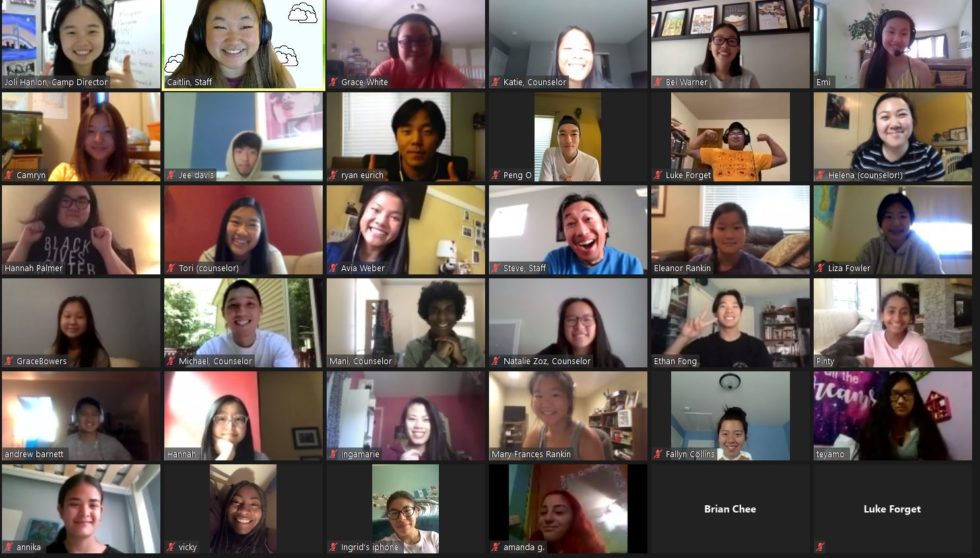
As COVID-19 canceled in-person gatherings last summer, our post adoption services (PAS) team developed a virtual Holt Adoptee Camp experience for over 340 youth Adoptees. Holt Camp at Home was so successful that the PAS team is now registering campers for the 2021 summer season.
While Holt Camp helped lift the spirits of children isolated at home, the COVID-19 crisis has affected families and Adoptees in many different ways, including the recent rise in anti-Asian hate crimes in the U.S. In April 2021, Holt teamed up with Bethany Christian Services to host a virtual event, “Standing with Your Asian Child Against Racism,” which featured a panel discussion addressing how families can support their children as they encounter racism.
In 2020, Holt supported 1,776 families, children and individuals in the U.S. through services ranging from homestudies to pregnancy counseling to post-adoption coaching and education. Holt’s post-adoption team served 3,526 Adoptees, families and individuals, and 41 children in U.S. foster care received support, including 12 children united with adoptive families and 3 children reunited with their birth families in 2020.
